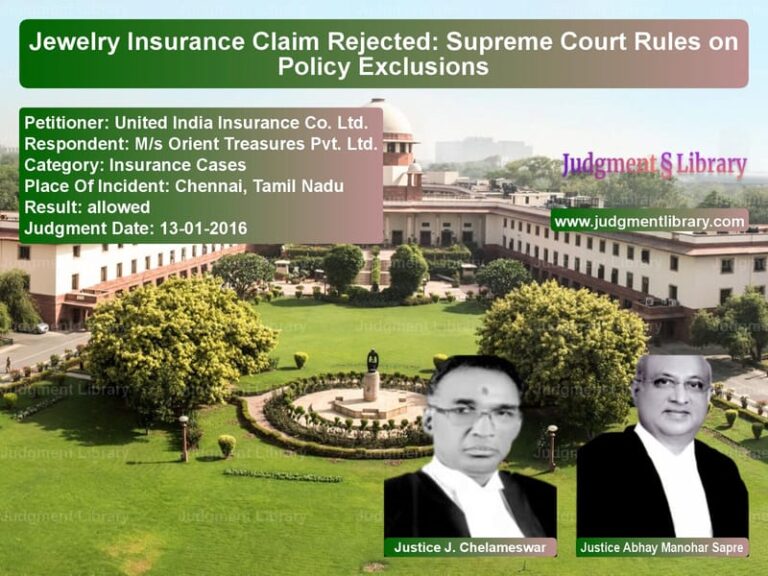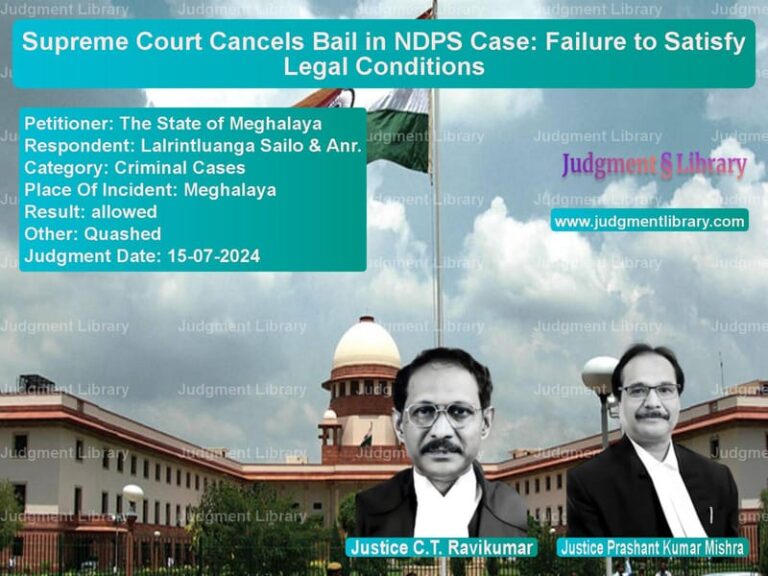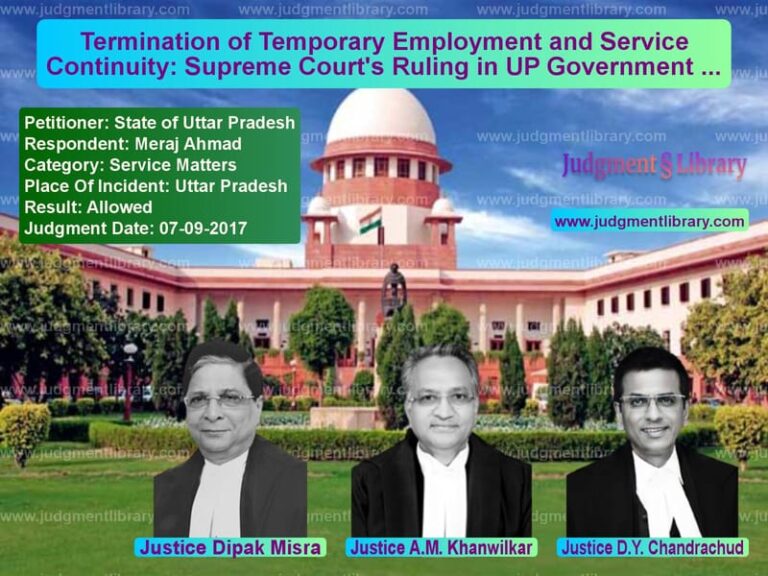Pre-Deposit Requirement in SARFAESI Appeals: Supreme Court Overturns Bombay High Court Ruling
The Supreme Court of India, on March 2, 2020, set aside the Bombay High Court’s order, which had held that pre-deposit was not required for filing an appeal before the Debt Recovery Appellate Tribunal (DRAT) under Section 18 of the Securitisation and Reconstruction of Financial Assets and Enforcement of Security Interest Act, 2002 (SARFAESI Act). The case was between the Union Bank of India and Rajat Infrastructure Pvt. Ltd., concerning an auction sale of mortgaged property.
Background of the Case
Rajat Infrastructure Pvt. Ltd. (Respondent) had stood as a guarantor and mortgaged its property for a loan taken by two other entities. The Union Bank of India (Appellant) conducted an auction of the mortgaged property, with the highest bidder offering Rs. 66.52 crores. The respondent opposed the auction, alleging collusion and claiming that the property was sold below its actual value. The matter was contested before the Debt Recovery Tribunal (DRT), which ruled against the respondent.
The respondent then appealed to the DRAT. However, under Section 18 of the SARFAESI Act, a pre-deposit of 50% of the outstanding dues is mandatory for filing an appeal. The respondent challenged this requirement before the Bombay High Court.
Legal Proceedings
Bombay High Court’s Ruling
- The High Court held that the respondent had an alternate remedy before the DRAT and dismissed the petition.
- It observed that no pre-deposit was required since no decree or liability had been fixed against the respondent.
- The High Court later dismissed review petitions filed by the auction purchasers, reaffirming its decision.
Petitioner’s Arguments (Union Bank of India)
- The bank argued that Section 18 of the SARFAESI Act mandates a pre-deposit before an appeal can be entertained.
- It relied on past Supreme Court judgments stating that appellate remedies under SARFAESI cannot be exercised without fulfilling statutory conditions.
- The bank contended that allowing appeals without pre-deposit would set a dangerous precedent and lead to frivolous litigation.
Respondent’s Arguments (Rajat Infrastructure Pvt. Ltd.)
- The respondent claimed it was not a ‘borrower’ and should not be required to make a pre-deposit.
- It argued that the auction was fraudulent and that the property was worth much more than the auction price.
- The respondent maintained that the High Court had correctly exercised its discretion under Article 226 of the Constitution to grant relief.
Supreme Court’s Observations
1. Mandatory Nature of Pre-Deposit
The Supreme Court held that pre-deposit under Section 18 is a statutory requirement:
“There is an absolute bar to the entertainment of an appeal under Section 18 of the Act unless the condition precedent, as stipulated, is fulfilled.”
2. Applicability to Guarantors
The Court rejected the respondent’s claim that it was not a borrower, clarifying that mortgagors and guarantors are also bound by the pre-deposit requirement:
“A guarantor or a mortgagor who has mortgaged its property to secure the repayment of the loan stands on the same footing as a borrower.”
3. High Court’s Lack of Jurisdiction
The Supreme Court ruled that the High Court had no authority to bypass statutory provisions:
“The High Court has no powers akin to those vested in this Court under Article 142 of the Constitution. The High Court cannot give directions which are contrary to law.”
Final Verdict
The Supreme Court allowed the appeal and set aside the Bombay High Court’s orders dated November 25, 2019, and December 16, 2019. It ruled:
“We reiterate that we have not gone into the merits of the contentions raised by the parties, which shall be decided by the DRAT when it entertains the appeal and is called upon to do so.”
The Court extended the deadline for the auction purchaser to deposit the balance sale amount and allowed the respondent 30 days to file an appeal with the DRAT, subject to fulfilling the pre-deposit condition.
Implications of the Judgment
- Reaffirms that statutory pre-deposit requirements cannot be waived by High Courts.
- Clarifies that mortgagors and guarantors must comply with SARFAESI’s appeal conditions.
- Prevents abuse of appellate remedies in debt recovery proceedings.
- Strengthens the rights of financial institutions in enforcing loan recoveries.
Petitioner Name: Union Bank of India.Respondent Name: Rajat Infrastructure Pvt. Ltd. & Ors..Judgment By: Justice Deepak Gupta, Justice Aniruddha Bose.Place Of Incident: Mumbai, Maharashtra.Judgment Date: 02-03-2020.
Don’t miss out on the full details! Download the complete judgment in PDF format below and gain valuable insights instantly!
Download Judgment: Union Bank of India vs Rajat Infrastructure Supreme Court of India Judgment Dated 02-03-2020.pdf
Direct Downlaod Judgment: Direct downlaod this Judgment
See all petitions in Bankruptcy and Insolvency
See all petitions in Corporate Compliance
See all petitions in Judgment by Deepak Gupta
See all petitions in Judgment by Aniruddha Bose
See all petitions in allowed
See all petitions in supreme court of India judgments March 2020
See all petitions in 2020 judgments
See all posts in Corporate and Commercial Cases Category
See all allowed petitions in Corporate and Commercial Cases Category
See all Dismissed petitions in Corporate and Commercial Cases Category
See all partially allowed petitions in Corporate and Commercial Cases Category







